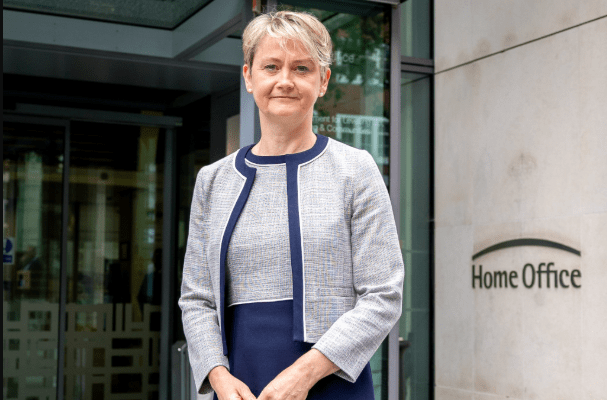Home Secretary Yvette Cooper is the last cabinet minister yet to finalise a spending agreement with the Treasury, just days ahead of the crucial Spending Review.
Despite being offered above-inflation increases in police funding over the next three years, Cooper has not signed off on a deal. The impasse comes as other departments, including Housing and Justice, have already secured their financial settlements.
Intense negotiations with Chancellor Rachel Reeves and her team have continued into the final days. The Spending Review, due this Wednesday, will outline departmental budgets through to 2029. Yet, the Home Office remains the only major department without an agreed plan.
An internal push by the Home Office insists that current spending proposals fall short of maintaining police officer numbers, jeopardising government pledges on neighbourhood policing.
A growing number of senior police officials, including Metropolitan Police Commissioner Sir Mark Rowley, have publicly demanded more resources. However, a Treasury insider insists the offer of real-terms increases in police funding predates Rowley’s statements.
On Monday, Nick Smart of the Police Superintendents’ Association and Tiff Lynch, acting national chairman of the Police Federation of England and Wales, warned in The Telegraph that: “Police forces across the country are being forced to shed officers and staff to deliver savings.”
They added that police morale has been “crushed,” painting a bleak picture of the current state of British policing.
Some within government circles argue that Cooper might have negotiated a stronger position had she settled earlier, similar to Justice Secretary Shabana Mahmood, who managed to extract extra funding for prisons.
Still, an ally of Cooper defended her approach, saying she adhered to the Treasury’s schedule: “It should not be first up, best dressed.”
With time running out, speculation grows that the Treasury may have to impose a funding decision on the Home Office.
Technology Secretary Peter Kyle took a tougher line, suggesting police forces must also play a part in wider public service reform.
Speaking on Sunday with Laura Kuenssberg, Kyle said: “Every part of society was struggling. The chancellor was facing pressure from all departments for additional funding.”
While he confirmed new money for schools and science, he did not rule out tighter constraints on police funding.
Wider government priorities revealed
Other areas of government appear to be in line for support. The Department of Health is expected to receive a boost, though at the cost of reductions elsewhere, as Reeves aims to stay within strict fiscal rules. These include no borrowing for day-to-day spending and reducing debt as a share of national income by 2029/30.
Key announcements so far:
- £24m for AI education in schools (part of £187m for tech skills)
- £86bn for science and technology, including drug development and battery innovation
- £15.6bn for public transport in northern regions
Meanwhile, defence spending will also rise—from 2.3% of GDP to 2.5% by 2027, then 3% by 2034, partially funded by cuts to overseas aid.
The government also plans to revisit its controversial decision on Winter Fuel Payments, although full details will be held back until the Budget.
According to the Institute for Fiscal Studies, modest economic growth means departments outside protected areas like health, schools, and defence face inevitable cuts.
Liberal Democrat leader Sir Ed Davey has urged protection for social care budgets, warning: “You won’t get NHS waiting lists down… unless you have that investment in care.”
He added that closer ties with Europe could yield more revenue to support public services.






